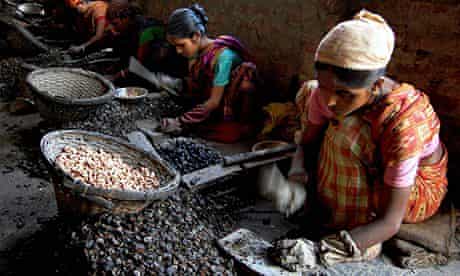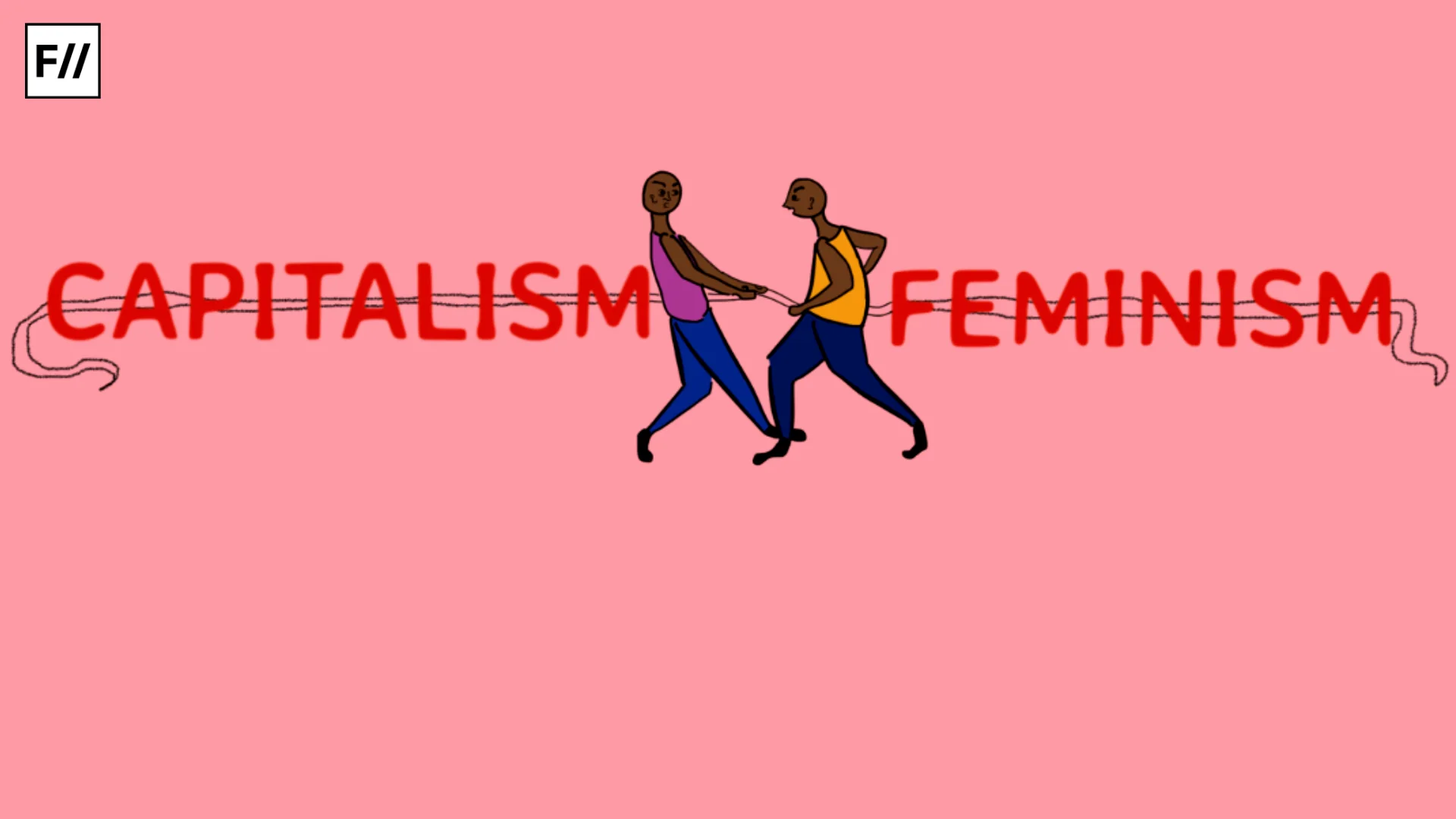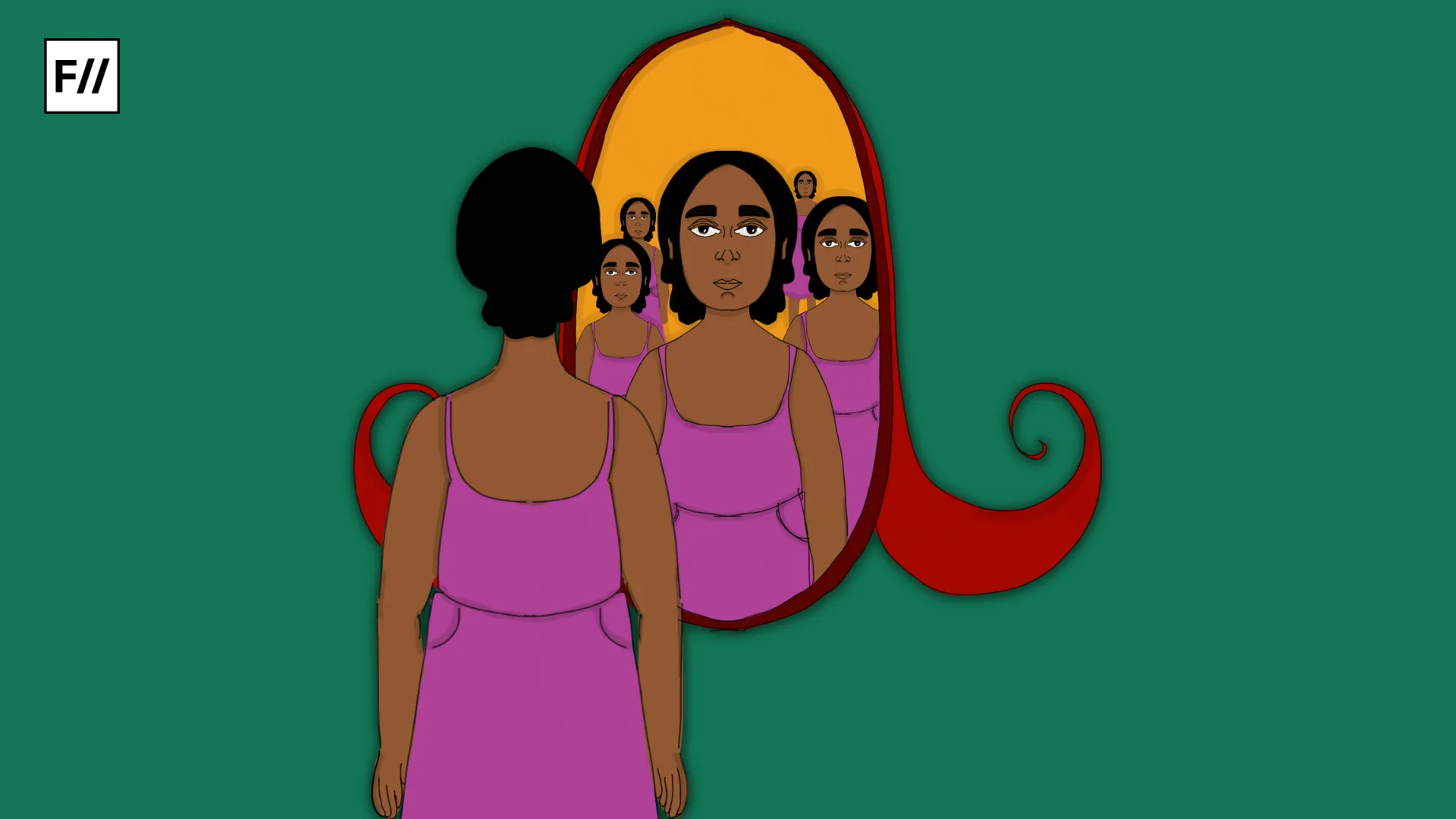Feminism is a socio-economic and political ideology focused on dismantling gender discriminatory structures. To put it simply, it advocates for equal opportunities for all in a systemically unequal world. Feminism is rooted in the principles of diverse representation, thereby implying that individuals have unique identities, experiences, knowledge and strengths which have to be addressed across all stages and levels of development.
Capitalism is an economic system in which means of production are privately owned and the decisions with respect to production (what, how and when to produce) are largely determined by the forces of the free market that are largely based on profits.
The unpopular nexus of patriarchy and capitalism has been hotly debated and discussed. Capitalism as an economic system is understood to be inherently exploitative and oppressive especially with regard to the power asymmetry between the owner of the factors of production and the individuals who sell their labour. This skewed power relation is only amplified when a woman is selling her labour for which she is paid a wage that significantly undermines the value contribution made by her. I build on this argument through my fieldwork experience.

Lucknow is a hub of intricate embroidery work- chikankari, zardosi and thread work. Upon interaction with the women engaged in this work, the issue of meagre wage and perpetual fear of losing the consignment emerged. A patch of embroidery work (7 by 10 cm) fetches them anything between 30-70 rupees depending upon the degree of precision involved. However, designing one such patch takes them 4-7 hours!
The position of an individual along the production and supply chain ultimately determines their bargaining power. Upon looking at different types of industries in informal sectors, a common feature across them is the employment of women in the lowest levels of the supply chains. This strips them off their negotiating power to begin with.
The governments, institutions and structures overall have to start by acknowledging and accepting that there is gender inequality plaguing our society. This has to be followed by gender mainstreaming across all the stages and levels of planning, policy designing and decision making. Gender mainstreaming is a transformative approach which has immense potential in challenging the status quo and skewed resource allocation
Feminism advocates for economic freedom and while money equals power, we cannot guarantee that the goals of feminism will be reached with it alone. Economic empowerment undoubtedly prepares the road to individual liberation but one needs to understand that capitalism promotes individualism over collective action.
Bell Hooks, known for her intersectional feminist theory, argued how focus on striving for equal pay and claiming top-jobs is reflective of the ‘bourgeoise class bias’. It fails to acknowledge and is not representative of diverse needs and aspirations of ‘women of color’.
Capitalism structurally oppresses, restricts and inhibits the access of marginalised individuals, minority communities, and differently abled persons by regulating the opportunities available to them. Based on such structures of inequities, it further exacerbates sexism, casteism, ableism and racism. Patriarchy and capitalism are intricately linked at the core. Commodification of women’s labour is at its peak courtesy the unequal power structures normalised by capitalism.

Feminism, on the other hand, is rooted in the principles of equity. It champions knocking down oppressive structures while capitalism, which governs production, thrives on these structural inequities. To put it simply, for a capitalist who is blindly driven by profit maximization, it benefits to hire ‘cheap labour’. And who dominates in these low paying, precarious jobs?- unarguably, women.
Also read: The Gender Pay Gap: Unequal Pay for Equal Work
The 2020 edition of the United Nations report on the state of gender equality in the world showcases that the gender gap in the labour market has remained the same since 1995 – the year when the landmark Beijing Declaration and Platform for Action for gender equality was unanimously adopted worldwide.
Women are disproportionately being affected by economic oppression through forced labour, meagre wages, triple burden of work, lack of access to resources and opportunities. As feminists, amidst this political turmoil, we cannot be naïve to believe that capitalist institutions will reimagine their oppressive structures. Instead,they will only work to strengthen their means
The World Economic Forum released its annual Gender Gap Report 2021 on March 31st, which is ironically also the women’s history month. India has slipped 28 spots to rank 140 out of 156 countries. The government’s grand privatization plan amidst the pandemic to provide impetus to the Indian economy must be looked at from a feminist lens, especially regarding how it can inevitably operate against the underrepresented and misrepresented minorities.

The governments, institutions and structures overall have to start by acknowledging and accepting that there is gender inequality plaguing our society. This has to be followed by gender mainstreaming across all the stages and levels of planning, policy designing and decision making.
Gender mainstreaming is a transformative approach which has immense potential in challenging the status quo and skewed resource allocation. From actively identifying the diverse needs of individuals, this approach can genuinely bring about paradigm shifts in our socio-political-economic structures and ultimately contribute to the gender dividend.

Intersectional feminism is being widely used as a tokenistic catchphrase these days. The unbearable economic pressures propagated by hyper-productive and individualistic approaches must not be left unquestioned by feminists. As a young feminist myself, I am making this clarion call to fellow feminists to call out these faux-piecemeal-economic- liberation narratives being sold by the capitalist structures.
Women are disproportionately being affected by economic oppression through forced labour, meagre wages, triple burden of work, lack of access to resources and opportunities. As feminists, amidst this political turmoil, we cannot be naïve to believe that capitalist institutions will reimagine their oppressive structures. Instead, they will only work to strengthen their means.
It is our job to collectivize in true spirit, co-create collaborative spaces, cancel the ‘hustle culture’ propagated by capitalism, and challenge systemic inequalities.
Aarushee is a postgraduate in social work with a specialisation in women centered practices from TISS, Mumbai. She enjoys designing feminist research products and indulges in data driven reporting. She can be found on Instagram, LinkedIn, Facebook and Twitter
Featured Image: Ritika Banerjee for Feminism In India




